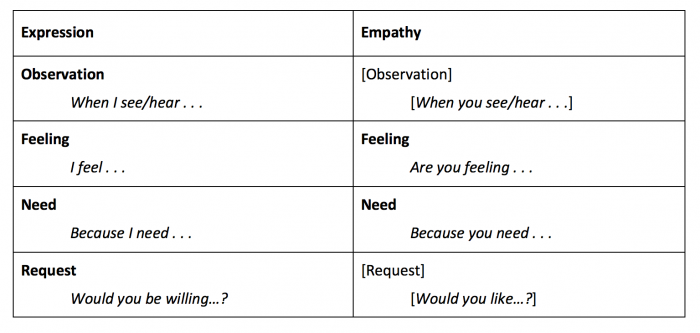My spouse and I have a recurring problem. I will try to talk about my day, which may include a tough problem that has been frustrating me. Before I've even had a chance to explain what is going on, he will offer solution, which may or may not solve the problem. We then up arguing over whether the solution will work or not, and he gets mad that I'm criticizing his advice, and I get frustrated because I didn't even want advice; I just wanted to share about my day! Whether I agree or disagree with his advice, he expects me to simply thank him (and presumably drop the topic since it is now "solved"). He claims he doesn't care if I actually act on the advice, but he doesn't want to discuss it after it's given. He doesn't understand why I object to this arrangement, despite my repeated attempts to explain it, and I'm unsure how to change that.
What I actually want when sharing a frustrating problem/experience is some empathy, for him to understand and be aware of what I'm struggling with, and for him to generally show that he cares and is interested in what is going on in my life. It's the same thing I want when sharing any experience with someone I care about. The fact that it's a problematic experience instead of a happy one is irrelevant. If I want advice, then I'll ask for it, but typically the problems I'm talking about are complex enough that there's no easy solution (or I'd have figured it out myself).
The things I've tried:
Modeling the response I want when he shares experiences/problems with me (which he has confirmed he enjoys more than me giving him advice, but it hasn't changed his behavior towards me)
Flat out saying I'm not looking for advice and just want him to listen when he tries to give it, but that causes him to withdraw from the conversation completely
I have tried repeatedly to make my desire for him to listen instead of problem solve explicitly at the beginning of the conversation, and he flat out refuses. I also have tried telling him the problem solving is making me feel worse, and that listening is what I need to feel better. He thinks it's absurd.
Quickly dismissing the "solution" so we don't get fixated on that instead, but he doesn't like being dismissed either
Keeping any problems to myself, but that causes a different sort of tension
Having a conversation where I try to understand why he's upset and also have him understand why I'm upset, but it quickly devolves into insults and snarky comments
It's especially frustrating because I feel like the first method should work, especially because he acknowledges that he doesn't want advice either, and he prefers me responding the same way I'm asking him to respond. We want to be treated the same way! But when I ask him to return the favor, he responds with "that's just how I am, if you give me a problem, I'll solve it". I get it, we're both engineers, we're both wired to solve problems when we see them. It's extremely hard for me to bite my tongue and not try to help him! But I do it because it makes him happier, and I just want him to return the favor.
How can I get my spouse to listen thoughtfully when I talk about a problem before summarily dismissing it with a "solution"? I don't mind the advice itself, I mind the not letting me finish, not attempting to understand how I see the situation, and then not wanting to discuss the advice given.
